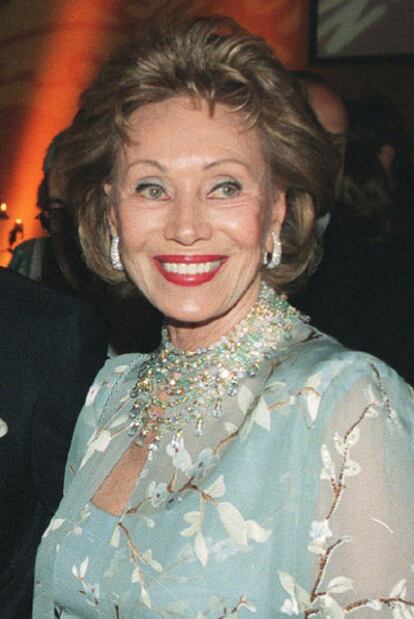Tracing the DNA of Argentina's past
Adoptive children of 'Clarín' owner forced to put to rest rumors they were stolen
The adopted children of one of Argentina's richest women have agreed to give DNA samples in an effort to discover whether their biological parents were among the country's "disappeared."
What should have been a discreet affair ended up being a public battle between President Cristina Fernández de Kirchner, her late husband Néstor, and the media group headed up by the Clarín newspaper. The identity of the two children adopted by Clarín group owner Ernestina Noble has been the source of clashes and speculation for years.
Marcela and Felipe Noble might be two of 500 babies that were born in captivity in the so-called chupaderos - secret prisons where pregnant women were taken to give birth before being killed during the 1976-83 military dictatorship. They could be two children illegally given up for adoption and whose biological grandmothers want to reclaim. Their adoptive mother is not only a rich woman, but also owner of Argentina's biggest media conglomerate, fiercely at odds with the government and hated by some sectors of society.
Ernestina Noble, 86, believes that her children's identity is being used as a weapon in that battle. The Grandmothers of the Plaza de Mayo human rights campaigners indicate that Clarín's lawyers are to blame for the case's notoriety because they have constantly blocked the investigation.
Finally on Friday, Marcela and Felipe, both 36, decided to comply with a court ruling obliging them to give DNA samples in order to compare them with the National Genetic Data Bank (BNDG). They went to Durand hospital, where they had to wait for nine hours, alongside dozens of journalists and lawyers, for blood, saliva, hair and fingerprint samples to be taken. At least this time, the medical procedure was neutral and less shocking than the situation in May 2010, when policemen and judicial agents forced the two Noble children to take off their underwear before strangers. According to BNDG experts, those samples were "contaminated" and useless.
It will take three or four weeks to determine whether Marcela and her brother were born to people who were victims during Argentina's Dirty War - as the Grandmothers of the Plaza de Mayo believe - or if their DNA does not match up with a data bank sample and the whole thing has just been a nightmare. Recently, government spokesmen have toned down the issue. Estela de Carlotto, the Grandmothers' president, who has always been respectful towards the Nobles, recalled that she never said that the parents of Marcela and Felipe were among the "disappeared," but instead clarified that they "might have been."
"Irrespective of the result, this is what we have been waiting years for," she told Página 12 daily. "If they are not, those who made these youngsters suffer for so long bear a terrible responsibility," said Carlotto referring to Ernestina Noble. Alleged sons and daughters of the missing often refuse to take part in DNA profiling. They are usually men and women who have a good relationship with their adoptive parents and are afraid that the latter might be accused of misappropriation, a crime which is severely punished. In many cases, the situation is resolved discreetly and with a positive outcome for the Grandmothers: 102 grandchildren have been identified and a new relationship with biological families has been established.
Finding out one's identity is a right, but not an obligation, except in Argentina. In other countries, nobody would oblige an adopted youngster to have a DNA sample taken to satisfy biological relatives who demand the right to reestablish links. The situation in Argentina is different because a crime might have been committed in the process. Babies illegally given over for adoption have turned from victims into pieces of evidence of a crime.

Tu suscripción se está usando en otro dispositivo
¿Quieres añadir otro usuario a tu suscripción?
Si continúas leyendo en este dispositivo, no se podrá leer en el otro.
FlechaTu suscripción se está usando en otro dispositivo y solo puedes acceder a EL PAÍS desde un dispositivo a la vez.
Si quieres compartir tu cuenta, cambia tu suscripción a la modalidad Premium, así podrás añadir otro usuario. Cada uno accederá con su propia cuenta de email, lo que os permitirá personalizar vuestra experiencia en EL PAÍS.
¿Tienes una suscripción de empresa? Accede aquí para contratar más cuentas.
En el caso de no saber quién está usando tu cuenta, te recomendamos cambiar tu contraseña aquí.
Si decides continuar compartiendo tu cuenta, este mensaje se mostrará en tu dispositivo y en el de la otra persona que está usando tu cuenta de forma indefinida, afectando a tu experiencia de lectura. Puedes consultar aquí los términos y condiciones de la suscripción digital.








































